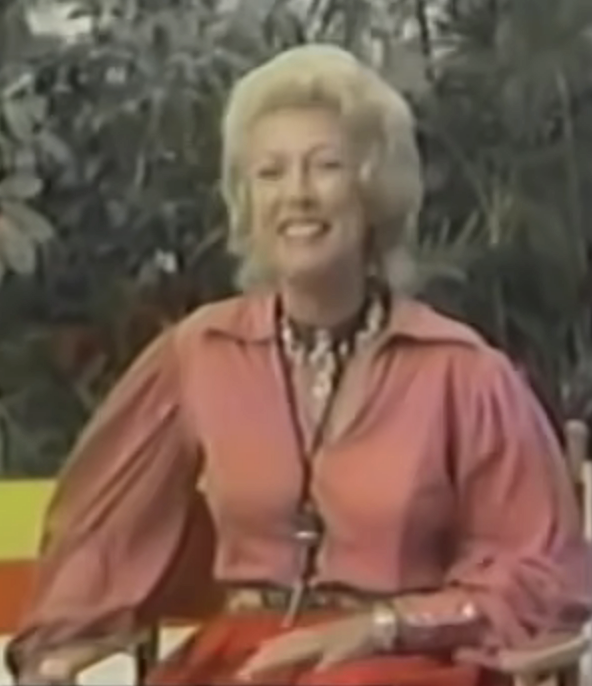7 Times Men Tried To Take Credit For A Woman’s Work Or Erase Them From History Entirely
- Oops!Something went wrong.Please try again later.
- Oops!Something went wrong.Please try again later.
- Oops!Something went wrong.Please try again later.
- Oops!Something went wrong.Please try again later.
- Oops!Something went wrong.Please try again later.
- Oops!Something went wrong.Please try again later.
It's a hard truth, but men sometimes take credit for women's accomplishments. So, of course, there are going to be countless examples throughout history of men co-opting and completely erasing women's contributions to the world. Men have been improperly credited for inventing everything from the disposable diaper to the hair straightener and even for huge scientific discoveries like nuclear fission and dark matter — all things invented or discovered by women.
20th Century Fox
And it's no different when it comes to pop culture history. Here are seven women who, despite making massive contributions to music, art, literature, and society in general, were cheated out of receiving the proper recognition they deserve:
1.The creation of One Direction was improperly credited to Simon Cowell.
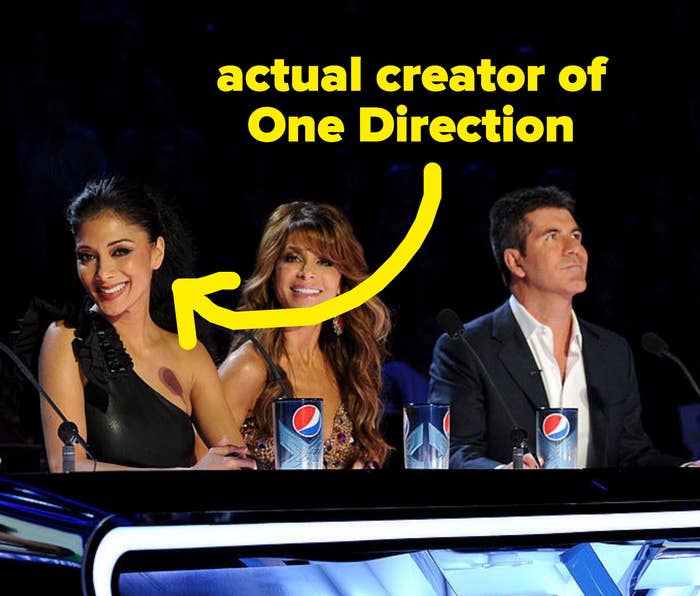
During a 2013 livestream to promote their Midnight Memories album, One Direction sat down with Cowell, and Harry Styles straight-up asked him whose idea it was putting the band together. Cowell took all the credit, stating, "I just said, 'Why don't we put these five into a group?' And it literally took 10 minutes."
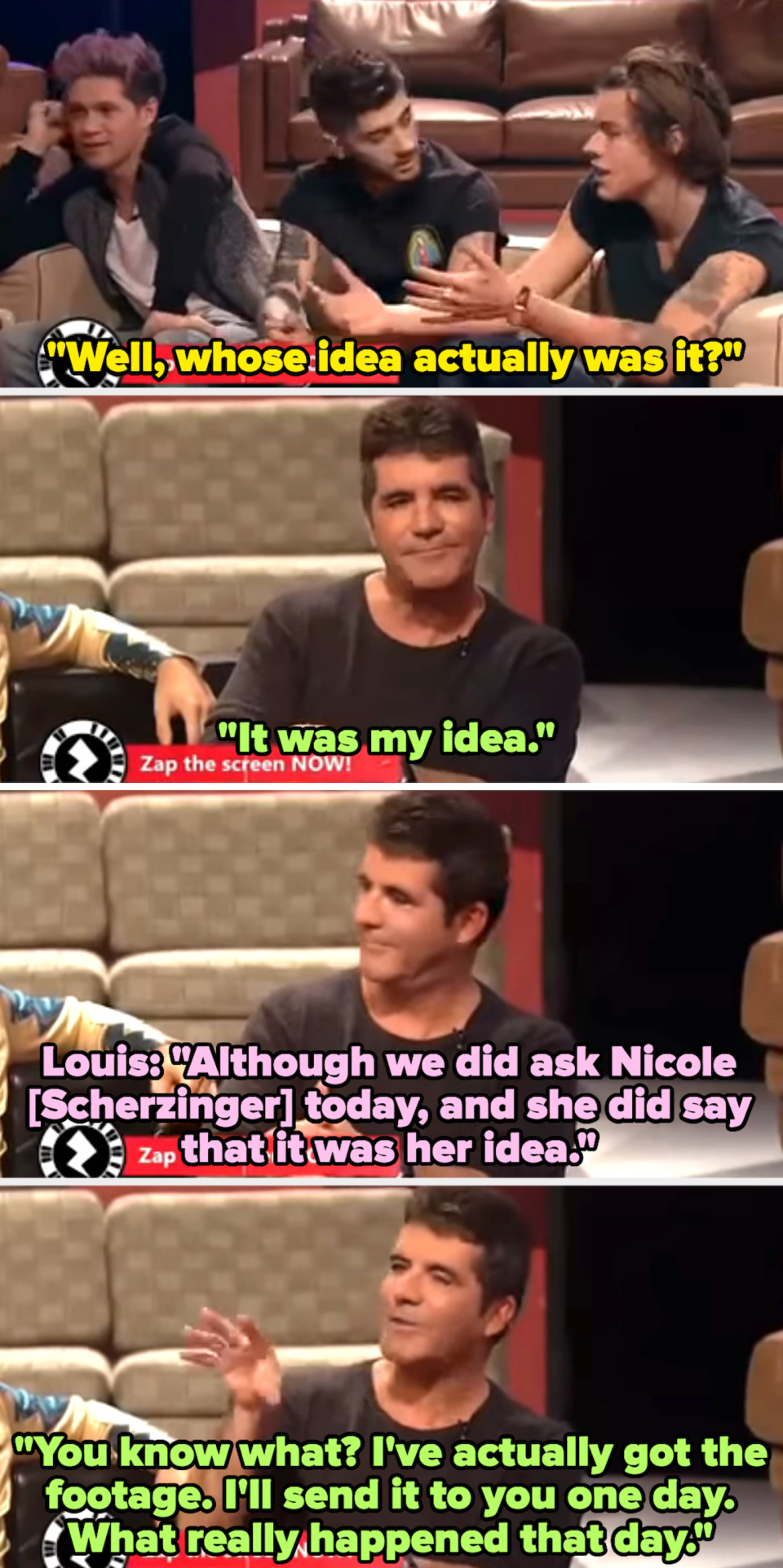
A whole nine years later, the truth came out. In 2022, The X Factor UK released previously unseen footage that shows guest judge Nicole Scherzinger actually putting the band together. In an interview later that year, Scherzinger said, "I never thought this footage would see the light of day. I thought Simon burned it."

Fremantle / Via youtube.com
2.The board game Monopoly was NOT invented by an unemployed Charles Darrow in his basement during the Great Depression.

Elizabeth Magie, an anti-capitalist and daughter of an abolitionist, created The Landlord's Game in the early 1900s, which had two separate forms of gameplay. The first was basically what Monopoly is today: accumulating land and wealth and taking it from other people. The second, though, was about spreading wealth equally. Magie created this game to promote her anti-monopolist beliefs.

But when the game started to spread, a man named Charles Darrow stole the idea and marketed it to Parker Brothers in the 1930s as solely his idea. Since some higher-ups at Parker Brothers were a bit skeptical of Darrow, they ended up covering all their bases and paid Magie $500 for her original patent. Imagine Magie's surprise when she saw her invention, now known as Monopoly, a game that actually promoted capitalism, become extremely successful, all with another man's name on it. She tried to set the record straight in a newspaper article, but the damage had already been done.

3.Kanye West took credit for Taylor Swift's career.

In 2016, seven years after Kanye West very famously interrupted Taylor Swift's acceptance speech at the 2009 MTV VMAs, West released his song "Famous." In the song, he takes credit for Swift's fame, saying, "I feel like me and Taylor might still have sex / Why? I made that bitch famous." West said he had permission from Swift to release the song with those lyrics, which Swift denied. In a Grammy acceptance speech shortly after "Famous" came out, Swift seemed to address the whole situation.
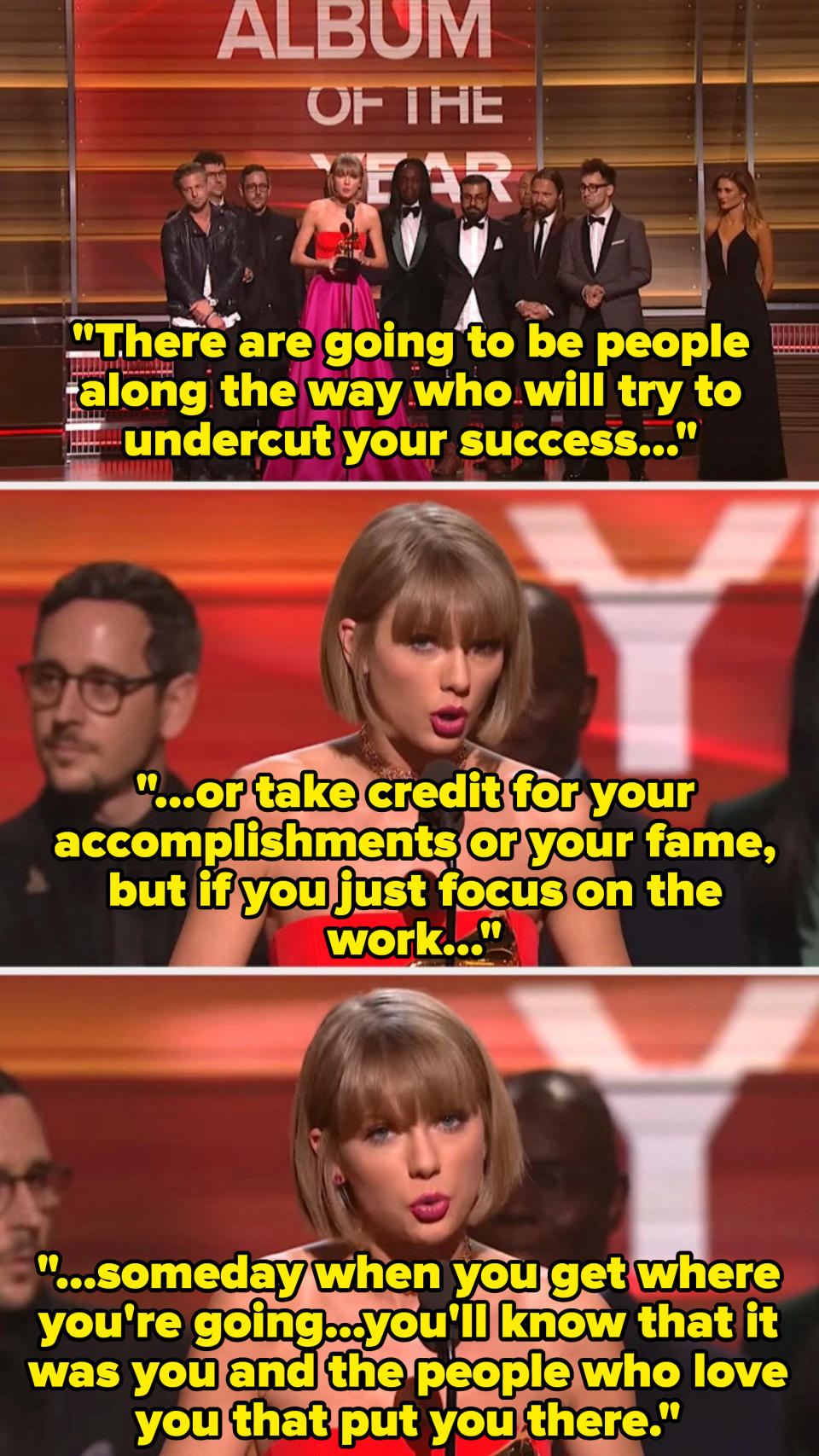
Even though Swift argued that she never told West he could use those lyrics, Kim Kardashian, West's wife at the time, released video footage of a recorded phone convo between West and Swift, where Swift seemingly gives him permission. Swift, now publicly perceived as a liar, started getting harassed online by the #TaylorSwiftIsOverParty, disappeared from the public eye before reemerging in 2017 with her Reputation album.
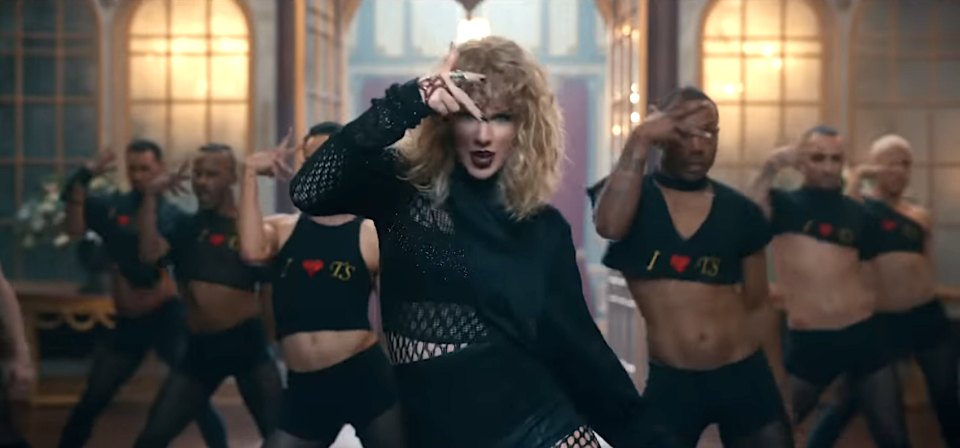
THEN, in 2020, the Kardashian video was released in its entirety, and we found out that Swift was telling the truth. She did not approve of any lyrics calling her a "bitch" and actually sounded super uncomfortable when Kanye asked, "What if I said...'I made her famous?'"

4.The Great Gatsby author, F. Scott Fitzgerald, stole his wife Zelda's work and passed it off as his own.
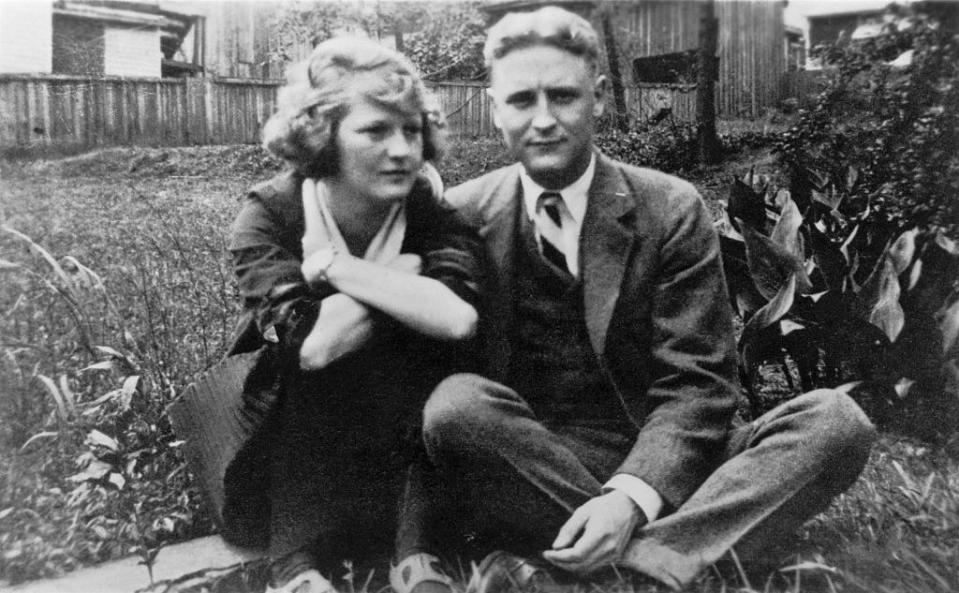
Scott was known to write down certain jokes or phrases that Zelda would say to use in his books, and he often modeled his female characters after her. But he took it waaay further when he actually started straight-up stealing her writing. In Scott's second novel, The Beautiful and Damned, he took entire passages written by Zelda and passed them off as his own. In an absolutely historic "good for her" moment, Zelda reviewed the book for the New York Herald Tribune and said, "It seems to me that on one page, I recognized a portion of an old diary of mine which mysteriously disappeared shortly after my marriage, and also scraps of letters which, though considerably edited, sound to me vaguely familiar. In fact, Mr. Fitzgerald — I believe that is how he spells his name — seems to believe that plagiarism begins at home."
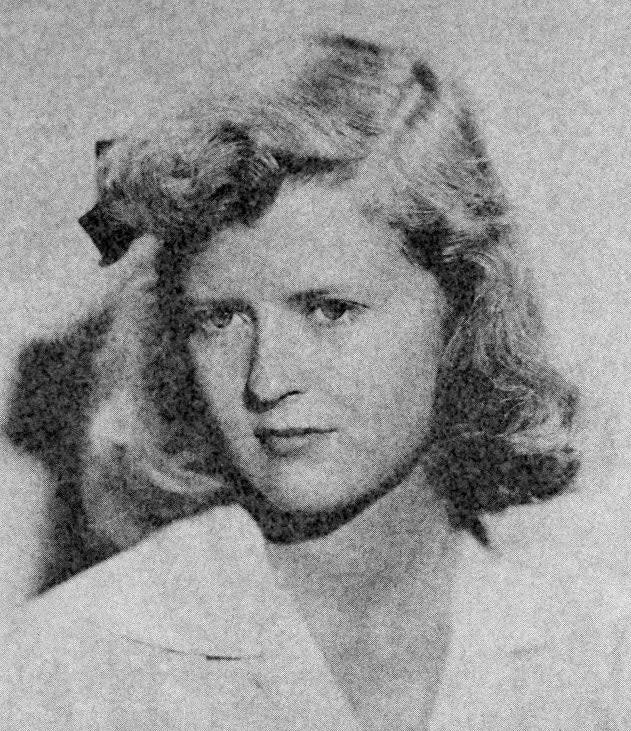
But that didn't stop him, and he continued to plagiarize. One of the most famous lines from Gatsby was not even his. The line, "I'm glad it's a girl. And I hope she'll be a fool. That's the best thing a girl can be in this world, a beautiful little fool" is based on something Zelda said after giving birth. Scott apparently even encouraged Zelda to have an affair with a man so he could use it as inspiration for the book. When Zelda attempted to get her own novel published, Save Me the Waltz, Scott was concerned that since it was autobiographical, it would reveal too much about what he was really like. The book was published, but Scott edited it to his liking and then prevented the publishing company from properly marketing it.
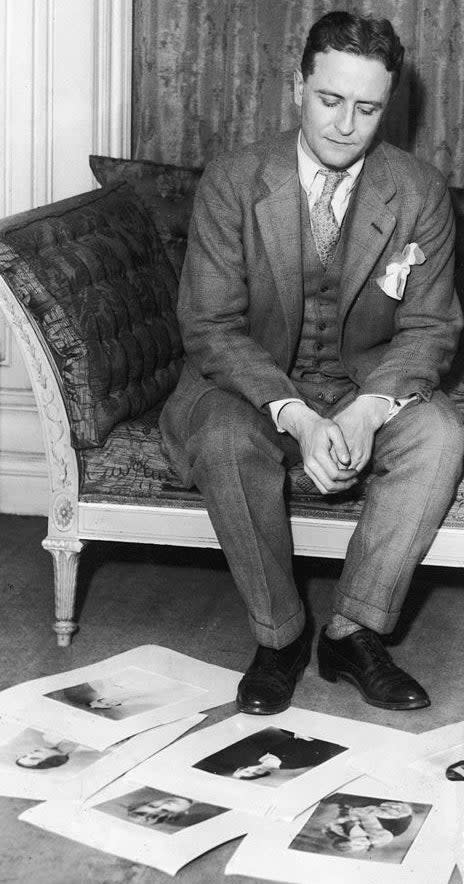
5.The original writers of the song "Killing Me Softly with His Song" tried to change the narrative of how the song was written.
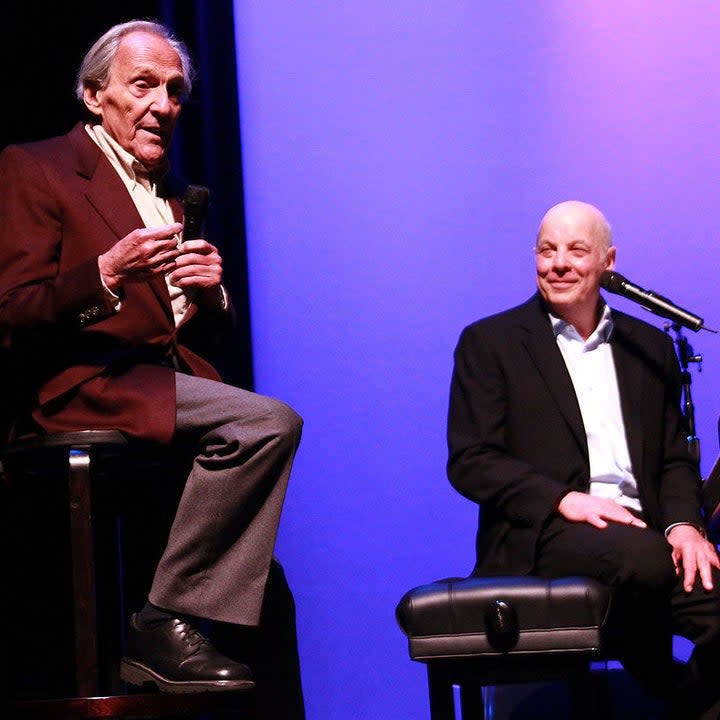
The story goes, after singer Lori Lieberman heard Don McLean perform his song "Empty Chairs" live, she wrote a poem on a napkin, which she showed to her managers, Norman Gimbel and Charles Fox, who eventually turned it into 1972's "Killing Me Softly" (Lieberman received no writing credit). All three told that story for years, with McLean even putting the story on his website.
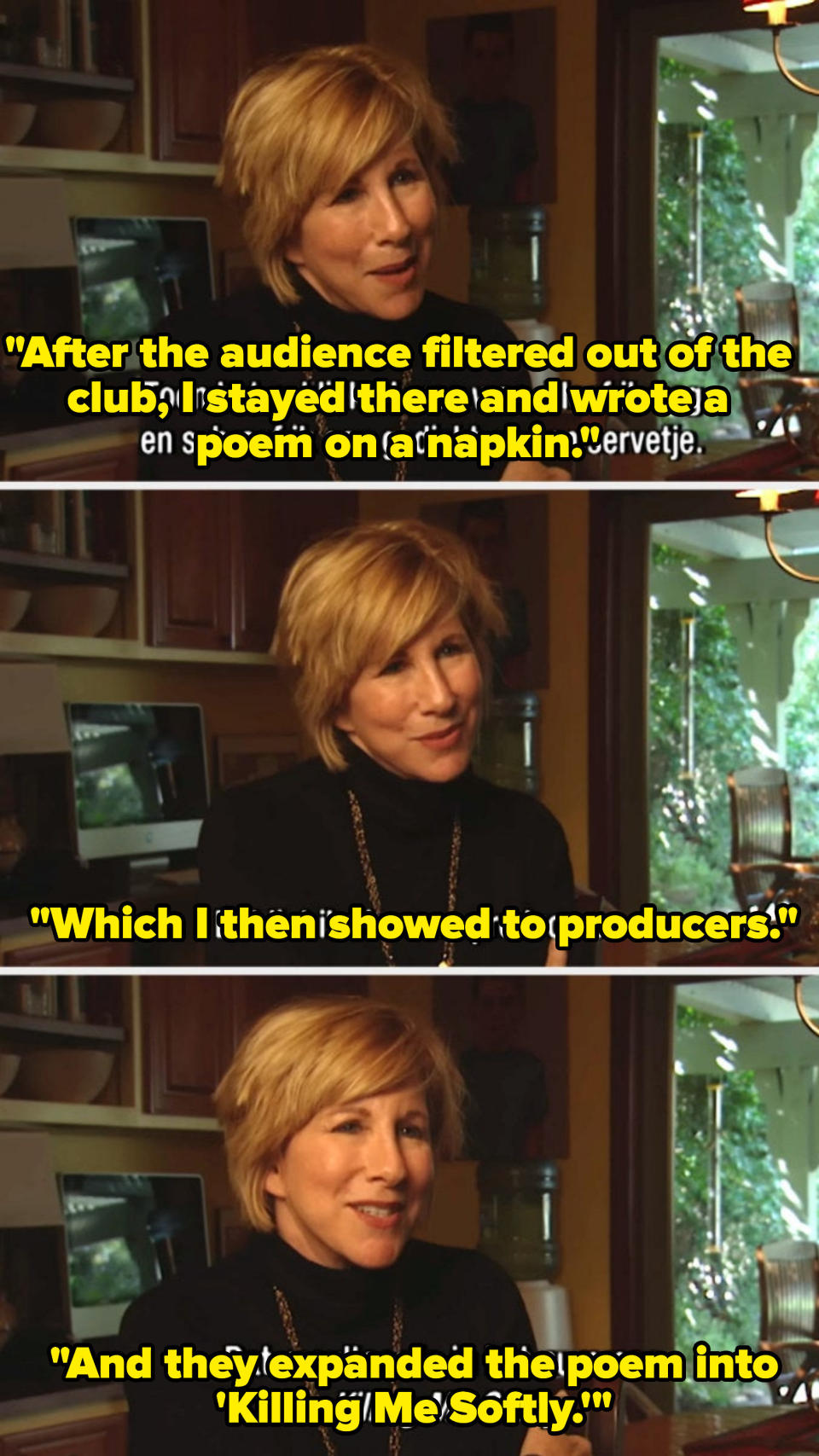
Gimbel and Fox met 19-year-old Lieberman through her pediatrician, which makes this next part just...kinda gross. Gimbel, 44 years old and married at the time, began a relationship with Lieberman, who five years later broke up with him for being "emotionally abusive and controlling." But after Lieberman revealed in a 1997 interview that the two managers were "controlling" and that she felt "victimized" by them, Gimbel and Fox changed their stories about her involvement, and Gimbel even demanded that McLean take Lieberman's name off his website. He didn't.

In 2011, after Lieberman released "Cup of Girl," a song about a young, naive singer who was taken advantage of, Gimbel sent her a series of angry emails, which she immediately deleted. Lieberman said in a 2020 interview with the Washington Post that she's “not looking for credit...[or] money." What she wants is "the truth of how the song was written to come out.”
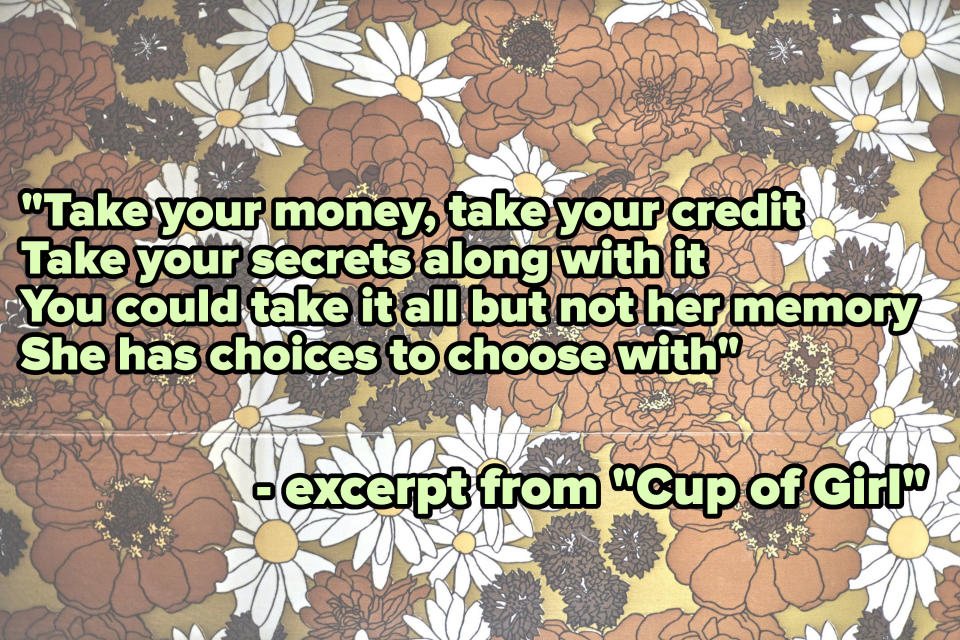
6.Martha Wash was uncredited on SEVERAL songs, despite providing lead vocals. Producers even hired other women to lip-synch to her voice for the accompanying music videos.

A handful of music producers in the '90s exploited the talents of "It's Raining Men" singer Martha Wash. They asked Wash to record back-up vocals or demos for other artists but then used her recordings as lead vocals in massively successful dance hits, and, in most cases, did not properly credit her. Other women were hired to lip-synch to her voice for music videos and even during live performances. Most famously, Wash's vocals showed up in C + C Music Factory's song "Gonna Make You Sweat (Everybody Dance Now)" and the song's music video, which featured singer Zelma Davis lip-synching to Wash's voice, something Wash described as "hurtful."
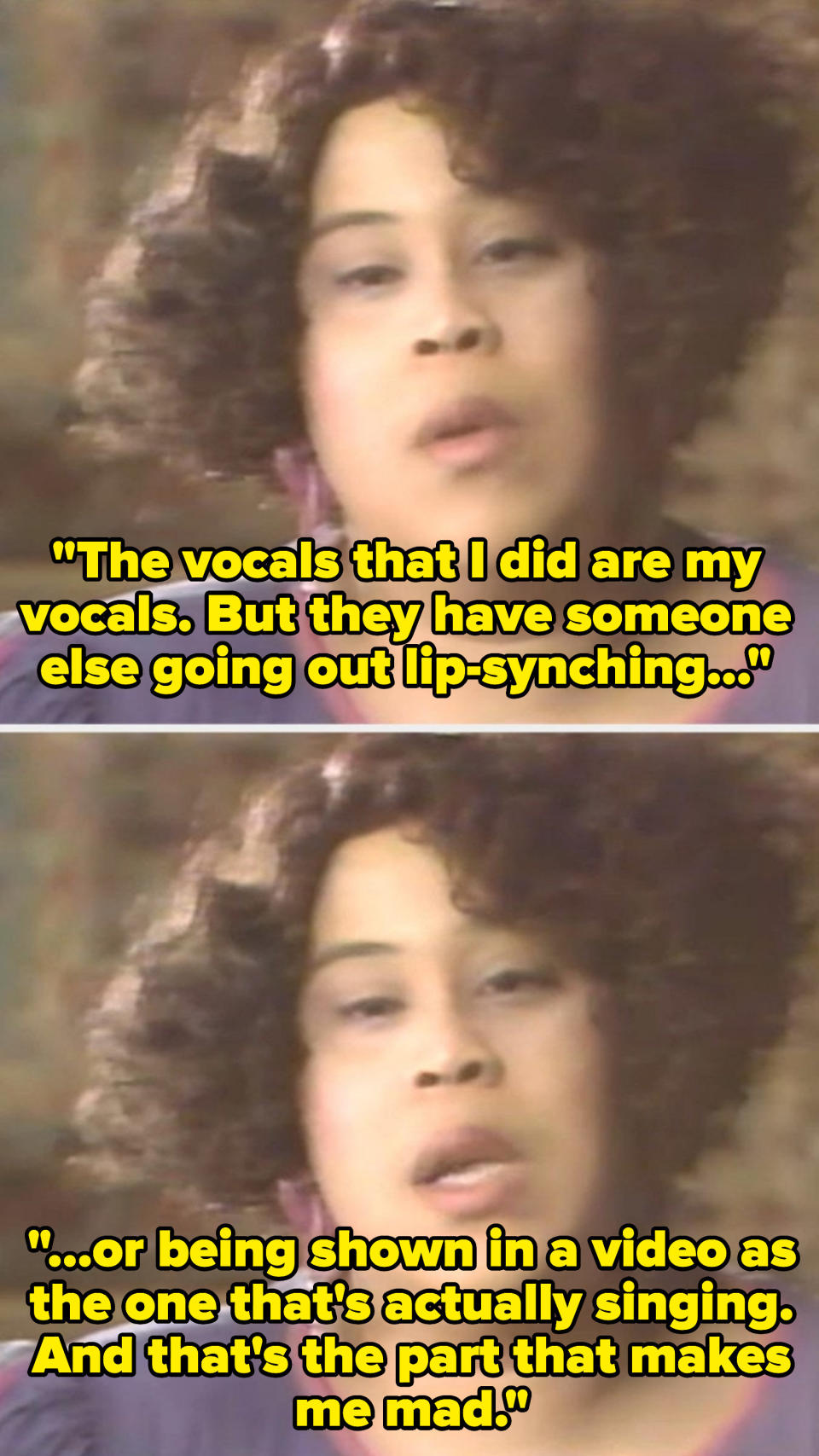
When asked about the accusation that Wash's weight had something to do with replacing her in music videos, producer Robert Clivillés of C + C said, "Those...accusations were ridiculous. We never would do something like that. ... When it was time to do the music video, we didn’t even know it would be wrong. We didn’t do it to fool people in any way." Well, whether you believe that or not, Wash sued and it's now mandatory for record labels to properly credit vocalists "for all albums and music videos."

7.Artist Margaret Keane's husband Walter took credit for her paintings.
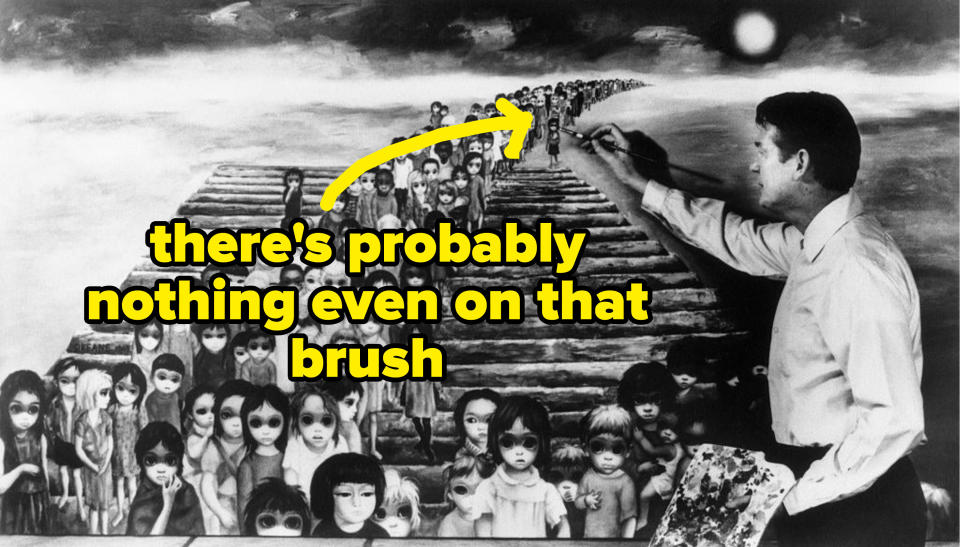
In the 1950s, Walter started selling his wife's art, but unbeknownst to Margaret, he put his signature on the paintings and passed them off as his own. When she found out, she never said anything. She was terrified of him and said that at "least they were being shown.” The paintings, which were all of very specific big-eyed children, were hugely successful and even owned by several celebrities. All the while, Walter held up this big lie, despite not even knowing how to paint. He even forced Margaret to lock herself in a room to paint for him. She said, "He wouldn't allow anyone in. I was like a prisoner.''
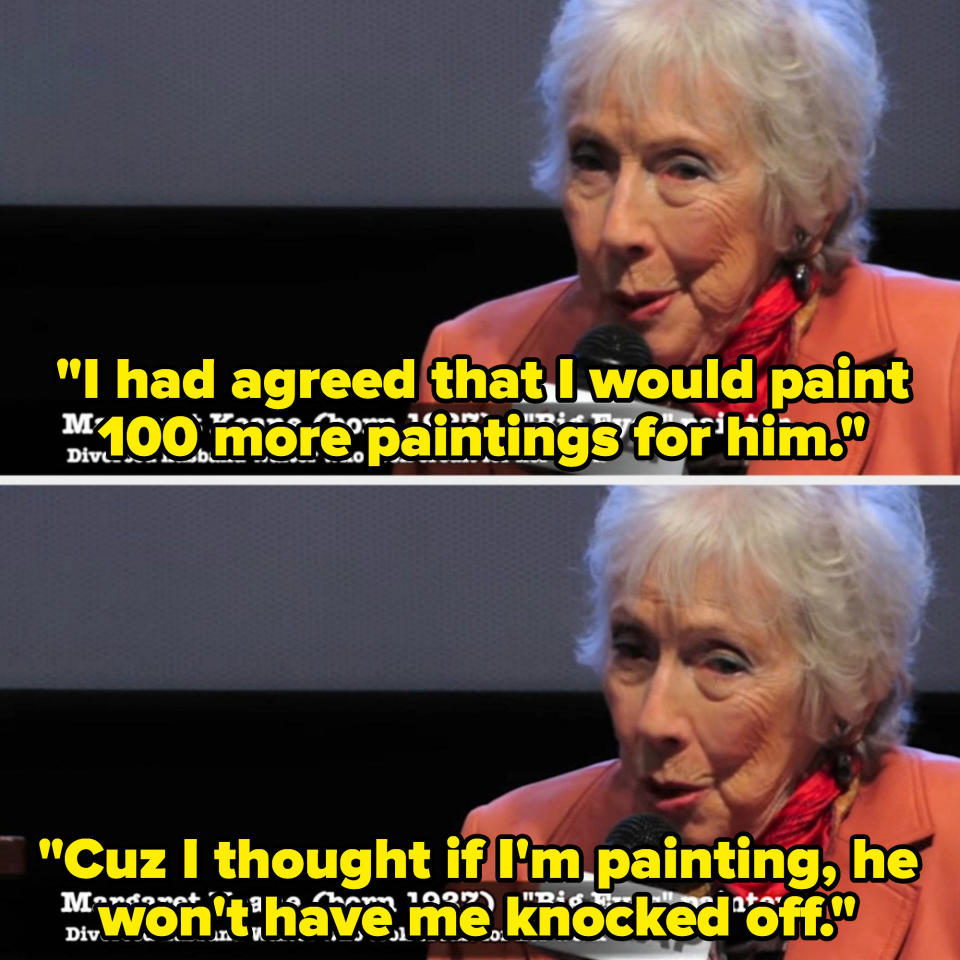
Shortly after the couple divorced in the '60s, Margaret revealed on a radio show that she was actually the artist behind the big eye paintings. To prove who the real artist was once and for all, a "paint-out" was held in California where both Margaret and Walter would each paint something. Walter never showed. Years later, in 1986, Margaret sued Walter — and USA Today — for claiming that he was the artist behind the paintings. When it came time to prove their cases in court, Margaret and Walter were given one hour to each paint a "big eye" painting. Walter said he had an injured shoulder and didn't paint. Margaret did and won her case.
